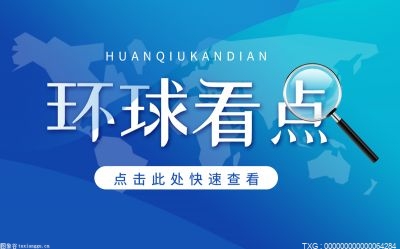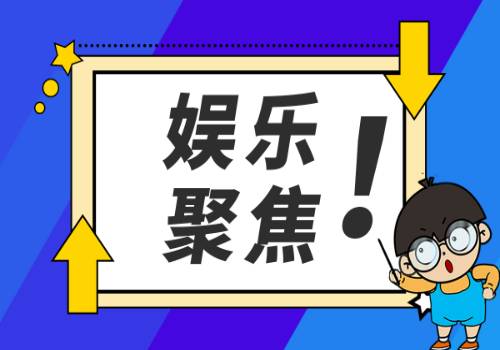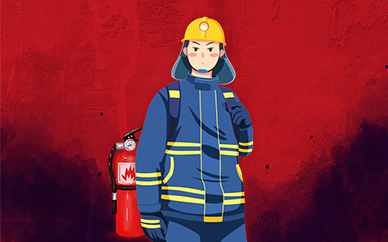Image Source: Visual China
Over the past three years, the pandemic has driven many consumers to camping, a safe way to embrace social activities within a bubble, enabling it to gain market share from homestays and hotels. The industry in China experienced explosive growth in 2022, when coronavirus outbreaks occurred in many areas of the country.
 【资料图】
【资料图】
However, with the pandemic easing and tourism making a comeback, the camping industry is facing challenges in 2023. Many camping enthusiasts and influencers told TMTPOST that they are camping less this year.
The overall camping market growth reached its peak in 2022 and the growth is expected to slow in 2023, according to the 2022 Chinese Cultural and Tourism Camping Industry Integration Development Research Report.
Nevertheless, the industry"s overall growth rate remains relatively high, with a projected total market size of 178.14 billion yuan in 2023.
Since the end of last year, after the issuance of industry-related policies and opinions in China, major tourist attractions have started offering camping projects, which is an exmaple that state-owned companies are following the foostep of private companies. (This is also an example of private capital overturning the trend of government intervention.)
There is still significant room for growth in China"s camping industry, with at least three to five years of growth, many camping brand founders told TMTPost.
The Chinese camping market has reached a critical turning point and is about to enter a period of stiff competitionthis year.
The “Missing" Camping Ground
After the camping craze in 2022, there has been a heated debate about whether camping is taking away market share from homestays and hotels.
The biggest difference between camping and traditional accommodation options like hotels and homestays is that camping is a mobile and flexible experience. While hotels and homestays require fixed assets that need constant renovation and asset management, camping grounds can operate with an asset-light business model.
Campgrounds have become the most profitable business in the camping industry. However, the rapid growth of the industry and lack of standard regulation have led to some companies treating camping as a "fee-for-land" business, which has disrupted the entire market ecology.
In late November 2022, the Ministry of Culture and Tourism, the Ministry of Public Security, the Ministry of Natural Resources, the Ministry of Housing and Urban-Rural Development, the Ministry of Emergency Management, the National Forestry and Grassland Administration, and 14 other ministries jointly issued the "Guiding Opinions on Promoting the Orderly Development of Camping Tourism for Leisure and Health". This document provides guidance on the development of camping equipment and clarifies the development of camping sites and how to manage them.
Image Source: Dare Glamping
Shi Zhengnan, co-founder of Dare Glamping, pointed out in an interview with TMTPost that this directly leads to the instability of land use, because policies may change. “The guidance opinions of the ministries have been issued, but it takes time to go from the issuance of the policy to the implementation of the policy in various places and to specific measures,” Shi said.
Therefore, selecting and constructing campsites in China have hidden risks due to rapid growth.
From a business perspective, operating a campsite is not easy, with over 50 factors to consider when selecting a site. Companies also need to consider the cost of renting the campsite and the number of days it can be used.
Shi stated that from leveling the land, laying gravel roads, building parking lots, ensuring fire safety, setting up service centers, to constructing infrastructure such as prefabricated shipping containers, bathrooms, and showers, all of these must be built by a camping company itself.
The payback period for building campsites varies due to too many uncertainties, with some recovering their investments in as short as two weeks, while others taking years or even incurring losses.
Dare Glamping was one of the first to attract customers online and had a relatively smooth experience partnering with hotels in Sanya. "Because there was no mandatory rental cost, I recovered my investment in just ten days," Shi said.
The majority of repeat orders at Dare Glamping camping sites come from light outdoor activities and dining scenarios, which have lower costs. The "no overnight" package is the most popular product line for orders and repeat purchases.
Currently, high-quality campsites in close proximity to urban areas in China are limited, according to Shi. He told TMTPost that Europe and America boast a high rate of camping participation with at least 70 to 80 million people camping annually. China only has around 2,000 campsites, whereas the United States alone has approximately 30,000, which are also of higher quality than those in China.
Shi believes that coverage of consumer scenarios is more critical than the number of campsites. The ideal situation is for camping scenes to be ubiquitous in service and leisure areas in hotels and scenic spots. For example, car camping is an emerging trend, with companies like Li Auto and Xpeng localizing the concept of camping and creating more features that cater to family scenarios. Integration between camping and car companies is also accelerating.
Image Source: Camplus
However, the camping market faces challenges because, unlike the domestic coffee market ten years ago, it is not a product. Shi pointed out that the business of localizing camping services will only be successful in certain specific scenarios, such as the proliferation of community marketing. Launching a new platform for booking camping services is not practical since the frequency of use is much lower than that of takeout and ride-hailing.
Although several vertical outdoor camping platforms have emerged in China, few have garnered a large following. It is challenging to establish a platform-level company in this niche market, and users find it difficult to place orders through a self-built system. Currently, few vertical platforms in the market are involved in the entire camping industry.
While some platforms such as Mi Ye Camp organize camping communities, they will soon face competition from a range of sources, including high-traffic platforms like Fliggy, Ctrip, Douyin, Xiaohongshu, and smaller platforms that can operate more precisely. Compared with the development of the camping market in Europe, America, and Japan, mature camping information platforms will only emerge after camping brands and products have matured. HipCamp, for instance, known as the "Airbnb of camping," have created a campground booking platform that enables users to search for refined camping ground options. China"s camping information platform is still in its early stages.
Domestic Camping Equipment Lags Behind Campers
Many campers are avid gear enthusiasts and devote considerable attention to modifying, upgrading, and refining their camping equipment and tools, according to Xiao Yu, a seasoned camping enthusiast.
Despite the increasing sophistication of camping players, however, domestically-produced camping products in China have yet to catch up. While China boasts an excellent supply chain and order fulfillment capacity that facilitate rapid updates of domestically-produced camping products, a lack of production standards has long plagued the outdoor product industry, resulting in a significant amount of camping equipment being criticized for being plagiarized.
"Apart from a few seasoned players, the majority of consumers are not well-versed in the functional characteristics of products in this industry. It is difficult for them to perceive the differences in products themselves," said Xu Guoqing, the founder of KingCamp and one of the earliest entrepreneurs to engage in outdoor camping in China. Xu further noted that the majority of advanced camping products can only demonstrate functional differences in extreme environmental usage scenarios.
Image: KHan Palace Tent
KingCamp, which has over 40 patented technologies and primarily exported its products to 46 countries before the pandemic, is now focusing on the domestic market. However, Xu shares that the company is facing difficulties in planning its product team, particularly in recruiting product managers due to the shortage of talents in the fledgling camping industry in China.
Tiana, the founder of the new outdoor lifestyle platform Camplus, noted that there is a consensus regarding the scarcity of product design talents in the camping industry. Tiana adds that, "In the camping industry, good design talent is also very easy to switch to other industries."
However, despite the talent shortage, camping product companies are poised to face a game of elimination. Although all companies aspire to become the next "lululemon," steadily upgrading from products to lifestyle brands, but few would become giants. Primitive, one of the top ten domestic outdoor camping brands in terms of revenues, is focusing on cost-effectiveness and targeting the mass market with affordable prices. Primitive saw sales double on a year-on-year basis in 2022.
Primitive"s founder, Li Pengcheng, likens the company"s positioning to that of Xiaomi in the domestic outdoor equipment field. This year, Primitive is increasing its presence at industry exhibitions to upgrade its brand.
Domestic Camping still in Early Stage
The Chinese camping market is still in its nascent stages compared to the more mature and standardized markets in Europe and America that underwent a phase of quality upgrading around 2010. It only entered the stage of forming a consumer trend in 2020. Xu Guoqing, the founder of KingCamp, reports that before the pandemic, over a thousand Chinese outdoor brands existed, but less than 10 achieved an annual revenue of over 100 million yuan. With at least 3-5 years of growth, the current camping market remains in its early developmental stage.
The "2021-2022 Research Report on the Current Situation and Consumer Behavior of China"s Camping Economy" released by the iMedia Research Institute reveals that the Chinese camping market was predicted to grow by 18.6% year-on-year, reaching 35.46 billion yuan in 2022. Some fast-moving top brands and manufacturers have already invested in downstream camping companies. Mobi Garden invested in the popular Dare Glamping, while tent manufacturer Boteen Glamping Tent invested in HaiKing luxury campsites.
The camping market is a very fragmented market, with the market scale of a single brand being limited. The camping market may produce a management group with multiple sub-brands like the Huazhu Hotels Group, but it is difficult to produce a brand with a large market share and scale. Camping companies will develop alongside traffic platforms.
"Layering" is the keyword for predicting the future development of the camping market, and the entire camping industry will soon enter a period of tough competition. Looking at the history of the Japanese camping, some Japan"s leading camping brand occupies around 10% of the market. Currently, no company in China"s camping market has achieved such a market share. This presents an opportunity for emerging strong players in the camping market.
The domestic camping market is poised for a highly competitive phase, with foreign companies already laying out their plans. Last year, Hoshino Resorts, a Japanese resort company, began implementing a hotel-plus-campsite model in China, while Snow Peak, a Japanese outdoor lifestyle brand, announced the establishment of a joint venture company in China in collaboration with Ren"en (Beijing) International Business Management Co., Ltd. and Citic Trust PE. The scope of operations includes the sales of goods and experiential services and is expected to begin operating in the first half of 2023.
It is not difficult for real estate and hotel groups to establish a chain of campsites, according to a former senior executive of a large outdoor company. However, the camping market is still waiting for a true bigwig with capital and marketing expertise to enter the market. From a channel perspective, most domestic camping brands have not yet established their own factories, and offline channels are still in the early stages of development.
Image Source: Camplus
Although the pandemic has impacted offline physical retail, some companies are considering expanding their offline channels. Xu Guoqing, the founder of KingCamp, closed hundreds of offline stores in China but is now considering whether to expand offline channels again. Li Pengcheng, the founder of Primitive, is focusing on expanding offline channels this year, with exhibitions and Douyin becoming important ways to expand offline channels.
The foreseeable trend this year is that after the boom, the camping market will soon cull the first batch of players. The real challenge for camping companies is how to move from business growth to business quality after the end of the pandemic. In the long term, a slowdown of growth in an industry is often a chance for breakthroughs and innovation. Camping enthusiasts will continue to seek enjoyment through camping, and the entertainment choices for urban, sophisticated camping users will only continue to grow. When most people are no longer following the trend and only pure players remain, the camping market is just getting started.
















































































